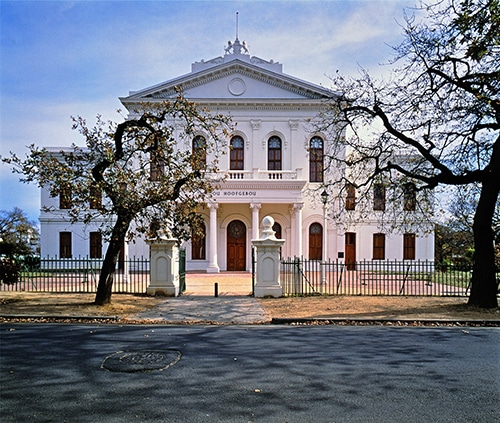Africa’s Geopolitical Position
Africa plays a vital role in the geopolitical landscape in terms of its geography, being a vast landmass stretching from the temperate zones in both the northern and southern hemispheres. It has access to sought after natural resources in the form of minerals, metals, and fossil fuels, and the potential to contribute to global food security. Yet as a continent, it has failed to realise these opportunities for its people.
There are three key reasons:
- Corruption
- Influence
- Debt
The malign influence of Russia and China, and other nations that seek to promote their own interests at the cost of African nations and their people have created opportunities, in turn, for those individuals who are prepared to solicit or accept bribes or commit other corrupt acts to support those nations and their activities.
There are numerous examples of corruption in the Chinese Belt and Road Initiative, and Russian actors have committed numerous corrupt acts to support regimes and other partners who, in turn, support Russian influence.
Corruption and influence appear to go hand in hand in Africa, but perhaps that says more about the nations seeking to influence and their ethical standards than the African nations that they seek to influence for their own ends.
Nations like the US, and the EU, seek to improve their own influence in Africa and argue that they are offering significant investment to tackle climate change, defend democracy and promote economic prosperity as a counter to the threat of Russia and China to their own interests and those of Africa. The question is how can this assistance be provided in a way that benefits African nations
The African continent is the second largest land area after Asia and the only continent that spans the temperate region of the Northern hemispheres to the temperate region in the Southern hemisphere.
Strategic Importance
Global powers and other smaller nations view Africa as strategically important for several reasons.
- Natural resource extraction
- Energy Security
- New markets for trade and investment
Africa is rich in oil, natural gas and coal. It is estimated to have 125.3 billion barrels of crude oil in reserves and 17.55 trillion standard cubic metres of natural gas². Almost 40%¹ of natural gas discoveries in the last 10 years were in Africa, primarily in Senegal, Mauritania, Mozambique and Tanzania.
Not only is Africa rich in fossil fuels, but it also has large quantities of other natural resources. 40% of the World’s gold and up to 90% of chromium and platinum are mined in Africa. Diamonds are also in plentiful supply, as is copper, uranium, sugar, iron, cobalt and silver. Crops include sugar, tropical timber and tropical fruit. In fact, 65% of the world’s arable land is on the African continent.
South Africa generates $125 billion per year from its mineral resources, followed by Nigeria at $53 billion, Algeria ($39 billion), Angola ($32 billion) and Libya ($27 billion). These five countries produced more than two-thirds of Africa’s mineral wealth, but most nations possess some mineral resource from which they derive revenue.
These natural resources make Africa strategically important to the global economy, and put the continent and its nations in a position where global powers seek to exert influence to further their own interests, often through corrupt means.
Sub-Saharan Africa holds particular importance to the United States. It has the largest free trade areas, one of the world’s fastest-growing populations and the most diverse ecosystems. It also has one of the largest regional voting groups in the United Nations. This region holds particular importance in tackling climate change, global food security and reversing the global decline in democratic integrity.
South Africa in particular holds an important global position as a strategic regional partner to the United States and is a member of the Southern African Development Community (SADC) which comprises 16 member states.
Natural Resource Extraction
The importance of mining natural resources and the extraction of natural gas and oil to African economies cannot be understated. Most nations have large quantities of minerals or fossil fuels that are sought by foreign nations for manufacturing or energy purposes.
These resources should contribute significantly to the GDP of individual nations. There should be great potential for extraction industries to capitalise on economic development and growth. Unfortunately, this wealth does not reach the poorest people, indeed this activity often causes a negative impact on the most vulnerable sections of society.
There are a number of reasons for this but – critically – mining techniques have often paid little regard to the environmental damage that they cause, impacting local land and causing water pollution. This affects agriculture and reduces food production.
Russia
The Russian state has a particular interest in mineral extraction and has developed a malign influence in many nations that provides the Kremlin with a deniable but highly effective network in Africa.
Russian actors often in the form of Russian Oligarchs and their networks work to promote the interests of the Russian state through influence, whether military in the form of mercenaries, or ‘softer’ activity in the form of corrupt activities like bribery. They rely on local officials and politicians to promote Russian interests.
Russia has been accused of exploiting Sudan’s natural resources in the form of gold. As the war in Ukraine began in February 2022, Russian flights were boarded by Sudanese officials and rather than the expected manifests, including one where they expected to find cookies, something rarely exported from Sudan, consignments of gold were discovered that were to be used to finance Russian military activity in Ukraine. Russia supported the 2021 military coup in Sudan that overthrew the transitional civilian government.
China
Sub-Saharan Africa is now the largest contributor of minerals to China. These include cobalt, for which it is almost exclusively reliant on African imports, chromium, iron, gold, manganese and other base metals and minerals.
Through state-owned corporations, China owns a number of mines throughout Africa, including a number in South Africa, and most notably in the Democratic Republic of Congo (DRC). Over 70% of mines in the DRC are now Chinese-owned. The country is rich in copper and cobalt, key ingredients in batteries for electric cars. In 2007 China and DRC signed the “Infrastructure for Minerals” deal worth $6 billion.
Chinese lenders promised to build critical infrastructure in exchange for profits from the Sicomines copper and cobalt mines. It was considered high risk at the time due to the high level of debt taken on by DRC, and the fact that the entire country’s GDP was just $14.5 billion. This project, along with numerous other Belt and Road Initiative infrastructure projects has experienced lengthy delays. There have been accusations that money has been diverted from this project, dubbed the “deal of the century” into the pockets of Chinese agents and former President Joseph Kabila and his family
Other nations have invested in African mines too. Australia owns hundreds of mines focussing on coal, iron ore and gold. Australian companies are either actively mining or at the exploration stage. In 2016, Fairfax Media revealed that bribes had allegedly been paid to the Congolese Government by Sundance Resources. Another Australian company, Mineral Commodities, was raided by the South Africa Department of Environmental Affairs over allegations of mining activity in prohibited areas.
It is true to say that extractive activities in Africa have largely been conducted by foreign corporations whether oil or mineral.
Energy Security
Energy security for foreign nations is based on similar principles to mineral extraction. Proven crude oil reserves in Africa stand at 125.3 billion barrels. Africa exports more than 25% of its oil and gas to China. The United States imports similar quantities of oil from Africa as it does from the Middle East, although most of its oil is imported from Canada and Latin America.
The availability of fossil fuels in Africa makes the continent a key player in international energy security, but African nations have failed to capitalise fully on their wealth and opportunity as nations like Russia and China simply plunder their resources.
Individuals in positions of influence and power whether in government or local companies in the host nations have been complicit in this activity, soliciting or accepting bribes and taking part in other corrupt acts through procurement and other processes.
India and Spain are large importers from Nigeria, and other nations are switching supply to Africa in favour of Russian imports.
Russia has begun to export oil to Africa as European demand has dried up due to sanctions resulting from the war in Ukraine.
Chinese corporations are investing in African oil. There are currently three key players, the China National Petroleum Corporation (CNPC), the China Petroleum & Chemical Corporation (SINOPEC) and the China National Offshore Oil Corporation (CNOOC). They are expected to invest approximately $15 billion in the sector. Surging demand has led China to diversify imports of natural resources, and Chinese activity can be seen in over 20 African nations.
The China National Petroleum Corporation and the government of Benin have signed a contract to build and operate an oil pipeline in the region. It will be a 1980 kilometre pipeline connecting the Agadem oil field in Niger to the Port of Seme Terminal in Benin. This is intended to enable connection to international markets, and promote social and economic development in Benin.
Russian involvement in the oil industry in Africa has been different. It is seeking to increase exports to Africa to open new markets as markets in Europe dry up due to sanctions imposed as a result of the war in Ukraine.
Wealth created in the oil industry does not seem to reach the poorest or most vulnerable people, leaving communities struggling with ongoing social and economic issues and questioning where oil revenues are actually going. The Nigerian National Petroleum Corporation has made its support for Chinese investment in Nigeria clear. That is despite its fair share of social and economic problems. There have been occasional violent demonstrations where young people have taken action including theft to demand access to the country’s oil wealth.
There has also been an arguable lack of transparency from the NNPC, which seems to be unable to account for $billions of revenue in recent years.
New Markets for Trade and Investment
It is reasonable to expect nations to trade with nations. That is not at issue, and many nations wish to open new markets in Africa and open mutually beneficial trading relationships, and done properly this can have a positive outcome for all involved.
How that is achieved is the challenge that both African nations and their potential trading partners face. All trading relationships require a robust regulatory framework and processes in place to ensure a “level playing field” for all parties in the trading relationship.
Corporations that wish to enter the African market may be reluctant to do so due to the risk of corruption in procurement and trading processes, and may simply avoid a market as a result. So for those corporations, robust compliance in integrity framework is crucial.
This coupled with similarly robust counter corruption processes in place in the companies with which foreign companies wish to trade, as well as in government, public and other private sector organisations ensure integrity in the supply chain.
The United States, through the US-Africa summit held in December 2022, has pledged financial assistance to encourage “new economic engagement”. This engagement suggests that the US is willing to make an effort to counter the corruption that prevails in existing activity.
The summit, attended by 49 African leaders, discussed the US-Africa commitment to democracy and human rights, global health, food security, peace and security and climate change.
This approach appears to be collaborative, catalysing critical investment in vital sectors that could reach the poorest and most vulnerable across Africa. The US seeks to counter the malign influence of Russia and the debt crisis that the Chinese Belt and Road Initiative could cause to protect its own interests. It presents opportunities for US companies to enter new markets in Africa.
Africa’s largest market for manufactured goods is the EU and is the fourth largest trading partner to the EU after the United States, United Kingdom and China. The EU has pledged €150 billion to help African nations tackle climate change, increase its influence and to be recognised as a favoured partner.
It is very clear that the current negative influences of Russia and China must be countered if nations on the continent are to realise the economic growth potential that they have, particularly considering the natural resources available to them.
Agriculture as an Example of Africa Failing to Realise its Potential
Africa imports 40% of its grain from Russia. This is despite 65% of global arable land being on the African continent. There is a significant opportunity for African nations to develop their agriculture as major source of investment and economic growth yet this has not been realised. African banks and investors have been reluctant to provide sufficient finance to realise these opportunities for growth.
Poor soil quality, climate, disease, technology and slavery have hampered efforts to develop African agriculture, yet 9% of the world’s freshwater resources are in Africa, and investment in agricultural technologies and development of new climate-proof crops could position African nations as major players in global food production.
Collaboration as a Proposition to Defeat Corruption
Foreign investment in Africa and the expansion of new markets are crucial to Africa entering the global community as an equal partner. The challenges outlined in this paper all contribute to the failure of Africa to seize its opportunities to develop as a global marketplace. It has yet to realise the benefit of exporting $billions of fossil fuels, metals and minerals for its own population, and much of this wealth remains in relatively few hands.
Not only that, it must realise its opportunities to reduce poverty, improve security and end human rights abuses across the continent.
The key to success is for African nations, many of which have acknowledged this issue, to begin by tackling the scourge of corruption. But this is not going to be achieved by global powers entering the arena in isolation.
African nations must resolve the challenges that they face with the support and collaboration of global powers like the United States and the EU. The solution is strategic, in as much as there must be Africa-wide cooperation, and local where individual nations tackle national issues using a strategic framework. This global solution will empower individual nations to take the necessary action to defeat corruption through the combined knowledge and resources of the African and broader global community.
This combination of global knowledge, support and finance coupled with African knowledge, collaboration and finance could be a powerful alliance and bring together the critical elements required to put in place continental and national strategies and structures to counter the corruption that is holding back economic development and preventing African nations from achieving their full potential.
Global powers like the United States are crucial to this success. Knowledge, resources and finance are critical, but Africa’s partners and supporters must be mindful not to repeat the mistakes of the past. Seeking to project power and influence simply will not work for African nations.
Nations in Africa and their global partners must enter into the spirit of collaboration and support Africa and its nations in developing and implementing their own solutions to defeat corruption and enter the world stage as equal trading and political partner.
¹According to S&P Global Platts
²Data from Statista




